M.K.B. Graham's Blog
April 29, 2025
What they won’t have …
I’ve been mulling the dilemma for future generations—especially when they become curious about their own ancestry, a search that is curiously engaging especially as one ages.
I’m fortunate because I come from a family with two habits that leave me with ample trails to follow. While some, of course, are rabbit holes, which I’ve written about, many more—far more, in fact—are pieces of history that tell my family’s history broadly.
Two clues advantage my searches greatly. One is my forebearers’ propensity to keep and hold documents, and second, their dogged devotion to letter writing.
Recently, I spent a week pouring through a group of letters that my parents wrote to each other in 1950—the year of their courtship, engagement, marriage, and early married life.

Ten months. Two writers.
Two hundred and four letters!
That year my Dad was traveling all over a four-state area for his job as a bank examiner while my mother, in her hometown, worked at a local college and enjoyed an active social life of parties, movies, bridge games and dances. In fact, she was so active, she only had time to date my lovestruck father on Friday nights and Sunday afternoons, requiring him to travel hundreds of miles every week to get a date.
In between weekend dates, they wrote letters. Sometimes twice a day. Unlike today, the post office of 1950 was fast and dependable. He would mail a letter in, say, Columbia, South Carolina, or Norfolk, Virginia, and she’d get it the next day in Radford, Virginia. It was like clockwork.
The letters tell a wonderful story of two young people falling in love. I get to know my parents as singles just beginning their adult lives. Through the letters I witness their gatherings at local dance halls and snack shops, their conversations about music, much of which came as gifts of LP records from my future father to my future mother. I get to see his exhaustive work pouring over ledgers and bank statements as an examiner and her frustration as a single working girl directing a college alumnae association. I get to see their Sunday afternoon drives and their discussions about their friends and their future.
The letters paint as complete a picture as one can hope for given the distance of time. The collection is simply a treasure.
Sadly, this is one source future generations will not have.
There’s a certain irony in the general consensus that “everything posted to the world wide web or social media is there forever.” We hear it all the time — anything on the Internet is there to stay. But is it really? And even if it exists there somewhere, will it be retrievable with any sense of order or context?
With technology “advancing” at the speed of light, future generations’ communications are now mostly assigned to random hard drives, “clouds,” discs, thumb drives. All this means is that they will disappear with the latest iteration. Think about the first emails you sent when the internet was brand new. Could you access them? Could your children or grandchildren find them? What about the information on the floppy discs in the back of your drawers? As technology moves, it dumps the past as quickly and efficiently as Apple updates my IPhone.
As a result, the view of future generations will not come from the kind of first-hand, handwritten peek into the past that my parents’ letters provide.
Throughout history, letters, diaries, and written documents have afforded the present an opportunity to look into the past. Think about the writings of the great theologians, the scientists, the politicians, the diarists, the ordinary folk—especially the ordinary folk.
But these histories will be lost to future generations. Instead, histories will come only through the lens of others, subject to all the opinions, biases and sensibilities that the teller will deliver either consciously or otherwise. Not the first-hand, direct, personal communication that a personal, handwritten letter provides. In this way, the original speakers will be silenced; only their echoes will survive.
And that, my writing friends, is a tragedy.
Image by beasternchen from Pixabay
April 24, 2025
The rabbit hole mystery …
The last time I posted here, I was mired in a mystery. I promised I would tell you if it solved it. So here it is.
The letter in question was indeed written by my great uncle, a man we affectionally called “Uncle Hoboo.” He was a little man who loved to tease and whose face beamed “mischief.” One of eight siblings born around the turn of the century, he lived in a house that had log cabin bones, a stream running next to it, and bevies of ducks, geese, dogs and cats—the kind of farm that city kids like us found irresistible. When my brother was 7 or 8, Uncle Hoboo sat him in the driver’s seat of his truck on a box and let him drive all over his farm. And when my sister and I were involved in a small fender bender with our Granny, he took a bullwhip to the roof of her black sedan and declared that the police were coming to get Granny. (They weren’t, of course.).
When I first read the letter, I suspected it might be Uncle Hoboo. At the time, he was in college at William and Mary. It would be a brief stay for him, but the timing was right, the sentiment was right, and the familiarity felt just right.
After a cousin sent me a bundle of old family letters, I was finally able to match the handwriting. I was right and the mystery was solved. The letter had indeed been written by Uncle Hoboo to his parents, “Mama and Daddy.”
I’m sure I’ll come across more and more rabbit holes. Such generate the kind of curiosity that makes writers crazy—and good at what they do.
So bring on the rabbit holes. I will happily hop in.
May 22, 2024
The perils of rabbit holes …
I’m taking a break momentarily. I have spent half of my day in a rabbit hole.
Unsuccessfully so far, I might add.
Rabbit holes—as anyone who has tackled deep research into history, particularly family history knows—rabbit holes are occupational hazards and can be maddeningly frustrating tasks AND amazing adventures. (When successful, they warrant a loud ‘Eureka!’)
I’ve spent hours trying to figure out who wrote this letter. It’s old, unsigned, and I am determined to discover the author. As with most rabbit holes, it contains tantalizing clues.
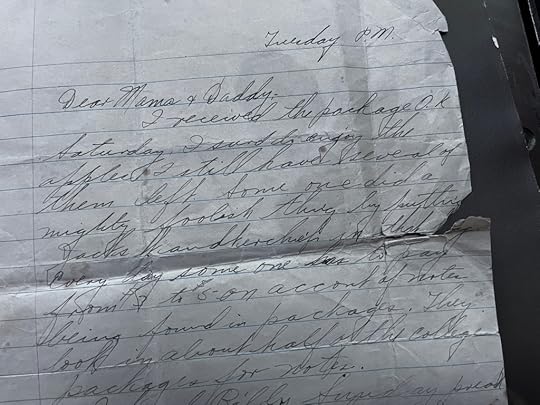
The letter is written in pencil on lined notebook paper to “Dear Mama and Daddy.” That’s one clue because on one side of my family my great grandparents were called “Mama and Daddy.” The letter writer, likely a student, has received a bushel of apples, thus it was written in the fall—apple season in Virginia. The writer also mentions a “big mistake” the sender made: “Some one did a mighty foolish thing by putting Jack’s handkerchiefs in that ?? (probably ‘bag‘). Every day some one has to pay from $3 to $5 on account of notes being found in packages. They look in about half of the college packages for notes.”
I had a great aunt whose nickname was “Jack,” however, in 1920, she was only 4 years old and likely didn’t have handkerchiefs to send. It was not likely a reference to her.
The writer also says he or she heard Billy Sunday preach in “the old jim (sic)” and that “the College paid $800 to get him up from Newport News.”
Aha. Since I learned that Billy Sunday, the baseball evangelist, preached in Virginia in 1920, I can fairly deduce that the writer was a college student or was somehow associated with a college.
“Up from Newport News” is a significant clue since William and Mary College, the alma mater of numerous aunts, uncles and cousins, lies just north of Newport News. Thus, the letter was likely written in the early 1920s. There is also the possibility, however, that “up” didn’t mean north. I live in Virginia’s Shenandoah Valley, and here to go “up the valley” is to go south since the terrain rises from north to south. Yes, confusing!
The most telling clue, however, is the handwriting—which, sadly, future generations will only vaguely understand. It can be as revealing as a photograph. In the case of my letter, it’s distinctive. To match it, I’m combing through scads of other letters from family members who left behind their “written fingerprints.”
So far I’ve come up empty, but I am also relentless!
Writers, especially writers of history and historical fiction, must be forensic scientists and detectives. Getting to the source, finding the answers, and drilling down is tremendously frustrating—until you find your answer, and then it becomes enormously SATISFYING and you can shout, “Eureka!”
Satisfying!…..thus I persist. Back to work.
April 11, 2024
Writers of a feather …
I have always loved getting together with fellow writers and avid readers. I can almost always guarantee there will be an absence of small talk and chit chat. Authors and writers tend to think deeply, to converse engagingly, and to entertain interesting and unique perspectives.
Nothing bores me more than mindless cocktail conversation (except ad-filled commercial television). So I will always jump at the chance to talk to writers and readers.
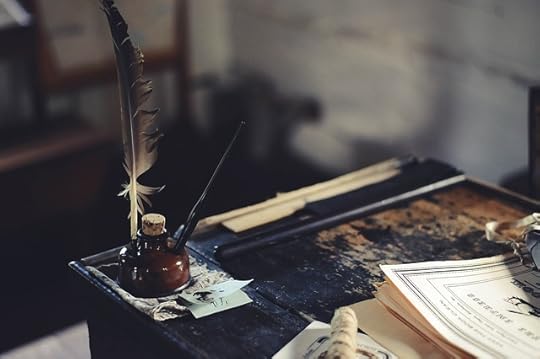
Over the past couple weeks, I’ve visited local book clubs and—as always—I was amazed at the insights of these devoted readers. Some were even new for me, the author. For a writer, hearing how and why readers enjoy and understand your work—whether they like it or not!—is a rich experience. It is the kind of conversation that writers devour.
Writers, to risk a cliche, are a special breed of birds of a feather who flock together. Let’s call them writers of a feather. And flock, they soon will …
Last fall, when our local library, Massanutten Regional Library, invited me to apply for their upcoming annual author festival, I jumped at the chance. Because I had published my latest novel in the calendar year 2023, I was eligible to apply and dutifully filled out my application.
To my delight I was selected to participate and to sit on a panel discussion about publishing avenues. Mine, of course, is self-publishing, although through experience, I’ve learned plenty about traditional publishing, agenting, and hybrid publishing.
Now, most writers will get this: I LOVE to talk about writing, the writing process, my books, what it takes to write a novel, how to self-publish, do you need an agent, do you want and agent, how much does it cost….the list of questions goes on an on. And on Saturday, I’ll get to spend a day doing just that, talking to writers and readers.
It is going to be loads of fun!!
And if you’re local, here’s their promo:
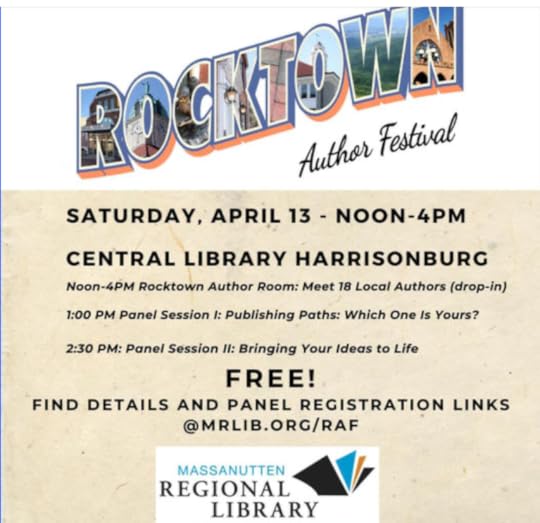
March 25, 2024
The ultimate review …
As the author of three historical novels, I’m always eager to know what readers think. I (like all writers) wait breathlessly for reviews. Now, however, I have received the ultimate review.
I recently reconnected with a friend I had known when I was a teenager. Our fathers had worked together, and she and I graduated from the same high school before going in separate directions. She and her husband eventually moved out of state and across the country where she taught at a university.
As you might expect, during our catch-back-up lunch the subject of my books came up. Graciously, she wanted to read them and did.
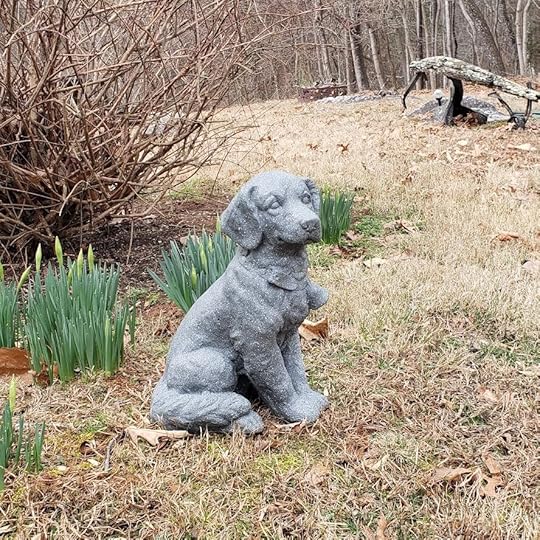
To my surprise and delight, she not only liked Fleuringala—but she sent me a picture of the newest addition to her family—a four-legged one. She named him Arly after the dog in Fleuringala—the fearless, faithful, and devoted friend to my primary character, young Ruby Glory. As you can see from the picture, Arly’s namesake is a wonderful dog, statuesque and obviously perspicacious—just like Ruby’s Arly.
Her kind gesture is, perhaps, the best “review” I have even received. It is certainly the most unique.
Now, I need to visit Arly as he keeps watch over her lovely farm—and to thank my friend again for the ultimate review.
(And maybe I can find some ripe paw paws to take as a thank you gift.)
March 18, 2024
The unexpected fact checker …
While I was working on my latest novel, one set in the the Virginia Highlands—a mountainous region with soaring views and deep restful valleys—I had an unexpected fact checker.
I had written in a late spring storm. As an earnest novelist, I am always cognizant of “verisimilitude”—the requirement that demands that everything in a book ring true, that scenes and situations are believable, and that a reader will readily accept every part of a story as credible.
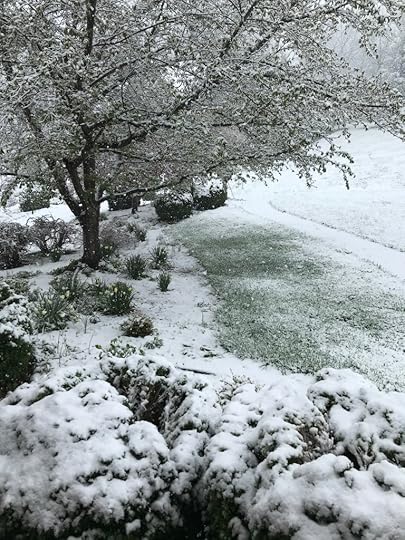
Although the storm was a necessary plot development, I worried that readers might “pshaw” over snow in spring—especially readers who are not used to the fickleness of Western Virginia, where, more than any other part of the Commonwealth, Mother Nature is often a teenage girl, prone to wild mood swings, dramatic winters, and stunningly beautiful springs.
So I worried. But then, this happened….
It snowed. In April. The 18th to be exact. After a gorgeous spring-like Easter. The redbuds were in full bloom and my front yard was peppered with miniature daffodils. Look closely and you can see them peaking out of the snow!
Anyone living in Virginia, especially the western part, understands that spring, summer, autumn, and winter are often confused over their traditional duties. February can be warm or bitter. December can be golf weather—or a snowboarder’s delight. Even the summer months can be moody and changeable.
By the next day, the snow was mostly gone, but I am reminded that sometimes the unexpected can become the affirmation—the unexpected fact checker—a writer needs. Because sometimes, truth does seem unrealistic—and this gives writers lots of wiggle room.
February 14, 2024
Readers are different …
A month or so ago, I published my third novel. As always , I did so with great trepidation and hope!
Living with a novel for weeks, months, years provides an author with a deep and penetrating knowledge of the characters and their lives. In one respect, authors come to know them so well that it is easy to assume that readers will have that same understanding.

Throughout the process, an author is tempted to lead readers too much, to assume they lack understanding, to treat them like children—and as a result, to insist upon filling in every bit of detail and minutiae so they understand the story.
In other words, to leave nothing to readers’ imaginations or intelligence.
But good writing and editing demands a writer trust readers to think. Most readers are smart people. Because they take the time to read a book, they are so different from those who prefer to sit in front of a screen and have stories laid out. Movies will always lack the depth and complexity of books.
Readers are different. They are delightfully complex, curious, determined, and tenacious. Most readers will see a book to the end, even ones they aren’t enamored with initially. They choose carefully when they begin and what they know from experience is that getting to the end makes the entire experience worth it. There’s a sense of accomplishment.
I remember reading a novel years ago that didn’t bowl me over at first, but my daughter, who had recommended the book, said, “Keep reading!” I’m glad I did. The ending—one of my favorites of all time—was absolutely worth the journey through the book.
So when I released my third novel it is with great hopes that I have succeeded in balancing what I wanted to write, what I know about my characters, and what audiences will discover—and fall in love with.
It’s that simple—and that hard.
Now I wait as reviews trickle in and readers tell me what they liked—or didn’t like. If you have a chance (or the inclination) to read any of my books, I would love to know what you think! Leave a comment here or on a book site….or shoot me an email. I am eager to learn your thoughts.
Dunkard’s Hollow, my newest, as well as Cairnaerie and Fleuringala, are available in paperback and electronically, through Amazon and most online booksellers
photo by Pezibear through Pixaby
December 13, 2023
The landing gear is down …
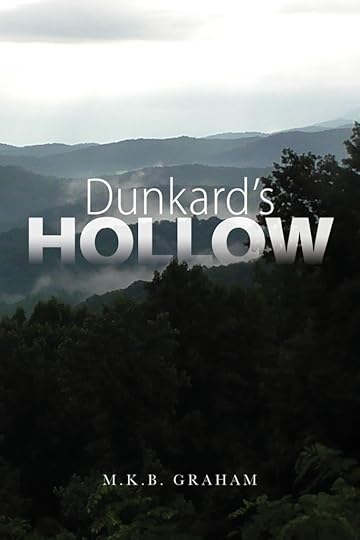
The hardest thing about writing a novel isn’t the writing. It isn’t even the editing. It’s certainly not finding a suitable cover (that’s fun!) The hardest part—undoubtedly—is letting it go and sending it out for the public to read.
And that is just where I’m poised right now. I’ve been flying with and around this book for years now. It started as a long short story and grew and grew until I had a full-fledged novel.
Once the story was written I began the long and essential process of self-editing. I say it’s essential because without this step an author has merely words on paper and may or may not have a well-composed, well-organized, well-written, and readable novel. For me that flight simply takes time. I have to think and mull and consider and change. I have to straighten out sequences of events. I have to check and double-check word usages. I have to make sure nothing is extraneous or out of place. I have to make sure the pace is good and smooth—and that there is no unnecessary turbulence for the reader.
That process requires taking the advice of editors and beta readers. These people will see pitfalls, mistakes, irregularities and illogicalities that I as the author who is intimately familiar with the text can simply miss. All this takes time. It’s a long flight.
Once all this is done, once the cover is ready, once the final corrections are made, once the practicalities like ISBNs are complete, once the manuscript is uploaded, it’s time to hit the “publish” button.
And it’s hard.
It’s scary.
It’s intimidating.
But it has to be done. And having done it twice before, I have lowered the landing gear and readied myself for landing. I have found the runway and throttled back my engines. My tray table is up, my seat belt is fastened for the landing.
So here I sit, on the last leg of a very long flight.
My new novel Dunkard’s Hollow should land on Amazon in a few days, and just like I always feel at the end of an airline flight, my heart is in my throat, and I am hoping, hoping, hoping for a smooth landing.
November 9, 2023
When I wanted to be famous …
Life has a marvelous way to training one to live. As the years sift through the proverbial hourglass, we sometimes forget that the pile of sand below the narrow neck grows—and the sand above diminishes.
I find that interesting. Thought-provoking. What can that mean?

I hope it means that each grain of sand is a little chunk of wisdom, and that as we age, we accumulate wisdom.
And we change. We change in marvelous ways.
I know that when I was 20, I wanted to be famous. I wanted to write something so spectacular that the world would “beat a path to my door.”
But now, decades later, the idea of finding fame is far, far, far from my list of priorities. In fact, I now understand completely the reticence of some people to eschew fame. I get it.
I suppose it has something to do with being satisfied. And I am satisfied with my life. I am especially satisfied with my writing life. It has entered a phase where I write what I want to write, and I don’t write what I don’t want to write.
Not too long ago, I emailed the author of a book I had finished and enjoyed. It was a first novel for her, and it had been a success. She appreciated my affirmation, yet from her email I learned she was frantically trying to produce another book for her publisher. She wrote: ” I am working on a new book and writing for the first time with a hard deadline.”
A hard deadline. I DO NOT miss hard deadlines. I cannot imagine anything worse than trying to write a book to please a publisher, to be under his thumb, to suffer the pressure to write another “success.”
Perhaps that’s why I’m satisfied. And why I no longer rush to find an agent, snag a publisher, and sign a contract.
Nope. I am loving the freedom of self-publishing.
As I finish up all the final details of my newest novel, as I watch the formatting and cover emerge from my tiny team—my editor and my graphic designer—I am enjoying the anticipation of sending out a third book into the world. And doing it my way.
This new book will, of course, never lead to fame and fortune, but it does lead to the very real and very satisfying sense of accomplishment.
And that is plenty for me.
October 3, 2023
What a chapbook reveals ….
Some time ago, I pulled together a chapbook for a literary contest. A chapbook—I had to look it up myself—is a compilation of various kinds of writing with a coordinating theme that runs throughout. I had no hope of winning because I am a writer not drawn to many of the currently popular subjects, but I assembled it because it was a good excuse—and fun—to read and organize some of my stories.
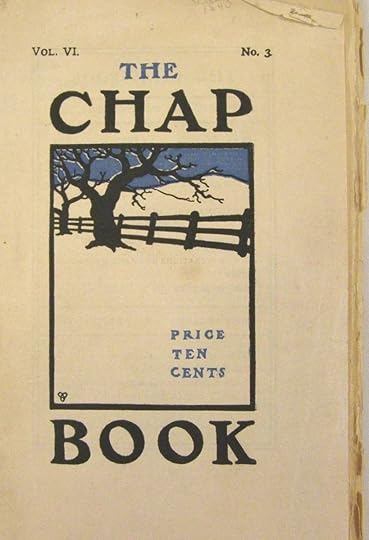
I wandered through a collection of short stories I’ve written over the years searching for that common thread. As I read through them and also thought about the novels I’ve written, I began to see themes emerging.
The first I recognized quickly— the power of place. It is a significant part of my novels. In Cairnaerie, the place—the house—becomes a character in itself. In Fleuringala, the small town of Lauderville, Virginia, launches and shapes the story. Clearly, I began to discover that many of my short stories are also anchored in a distinct place that provides a backdrop and shapes a story.
A second theme that emerged is optimism. I write—and live—with a kind of irrepressible sense of the positive. I get it from my mother whose frequent response to any situation, good or bad, was always, “Well, things work out for the best.” I’ve always believed in that axiom—and it is clearly reflected in my writing. Even the direst situation has a silver lining. Let’s take COVID, for example. While it wasn’t a fun two years, a lot of positive came out of it. There was the shift to online meetings that saved time and energy, creating new efficiencies for businesses and organizations. The same applies to work-at-home situations that provided much flexibility for workers—not to mention the cost savings in business attire, travel time, and transportation. Then there was a strong uptick in computer and online competency for many. Learning to navigate anything online was challenging, but it put us in good stead for the future.
A third theme that emerged as I wandered through my portfolio is the belief that all life is valuable—that every life no matter how apparently insignificant has a purpose and a meaning. I learned this lesson from a dear friend, now departed, who was born with very limited mental capacities—yet who had a monumental talent for friendship. (You can read more about her here in an earlier post.)
The point is this: They say that writers should write from experience—and it is true in many ways. No matter how far afield we may take our characters or what bizarre situations we create for them, we each have fundamental beliefs that permeate everything we can imagine. It informs our writing almost unconsciously—and influences our words. It is a kind of siren song that draws each of us to write based on what we’ve learned, what we love, what we value.
So here’s a challenge, especially for my writing friends. Look back over your own body of work and see if you can understand the themes and beliefs that shape your own writing. What does your own chapbook reveal?



